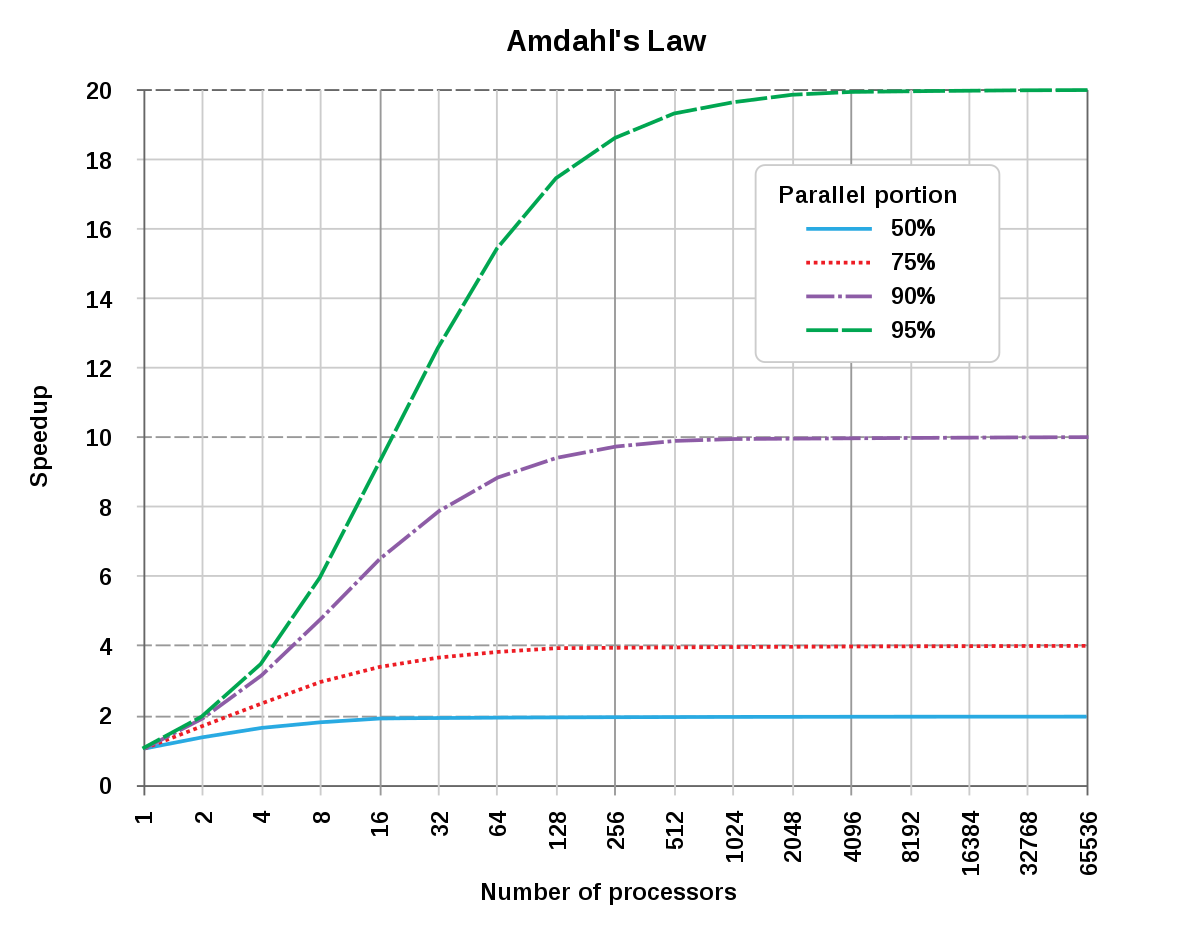If you could get a 1.4 GHz CPU with 24 cores, a 2.8 GHz one harboring 12 cores or a 5.6 GHz one with 6 cores which would be your ultimate choice?
I personally would go for cores over cycles. The impalpable beauty of more cores resonates thoroughly through lesser heat dissipation and curbed power requirements. It depends, of course, on the way the software employed within the system is written. A program may be written to support two cores; and a program may be written to support an indefinite number of them.
I still do think that having more cores would be better in terms of the future. Maybe there would be doubt evoked within the sphere of gaming currently; yet let's not forget that 'an arm's reach away' is propped up the everlasting shadow of the past with Pentium Ms running at 1.4 or 1.6 GHz, about 20 years in the past; and drastically increasing the number of cores would bring about a mellow consummation, shamelessly futuristic and highly evocative - an exultation synonymous to reading science fiction or thinking about the future longingly in the beginning of the 2000s. Yet unrealized dreams and pragmatical prisms lingering in many a mind go alongside the increase in cores which proves doubtlessly the birth of the future; the Pentium 4s being unable to hit more than 3.8 GHz and architectures shifting their searchlight to more pragmatical shades; the identicalness of multiple cores becoming unidentical with the latest generations today harboring different types of cores on the same chip.
What would you choose? Cores or frequency?
Write up and
Thank you! Every answer is greatly appreciated.
I personally would go for cores over cycles. The impalpable beauty of more cores resonates thoroughly through lesser heat dissipation and curbed power requirements. It depends, of course, on the way the software employed within the system is written. A program may be written to support two cores; and a program may be written to support an indefinite number of them.
I still do think that having more cores would be better in terms of the future. Maybe there would be doubt evoked within the sphere of gaming currently; yet let's not forget that 'an arm's reach away' is propped up the everlasting shadow of the past with Pentium Ms running at 1.4 or 1.6 GHz, about 20 years in the past; and drastically increasing the number of cores would bring about a mellow consummation, shamelessly futuristic and highly evocative - an exultation synonymous to reading science fiction or thinking about the future longingly in the beginning of the 2000s. Yet unrealized dreams and pragmatical prisms lingering in many a mind go alongside the increase in cores which proves doubtlessly the birth of the future; the Pentium 4s being unable to hit more than 3.8 GHz and architectures shifting their searchlight to more pragmatical shades; the identicalness of multiple cores becoming unidentical with the latest generations today harboring different types of cores on the same chip.
What would you choose? Cores or frequency?
Write up and
Thank you! Every answer is greatly appreciated.



